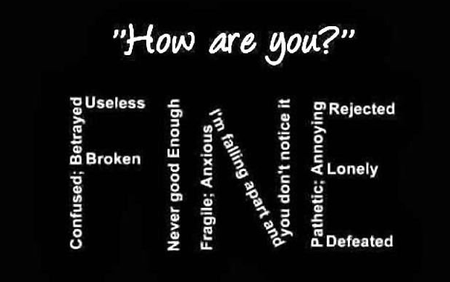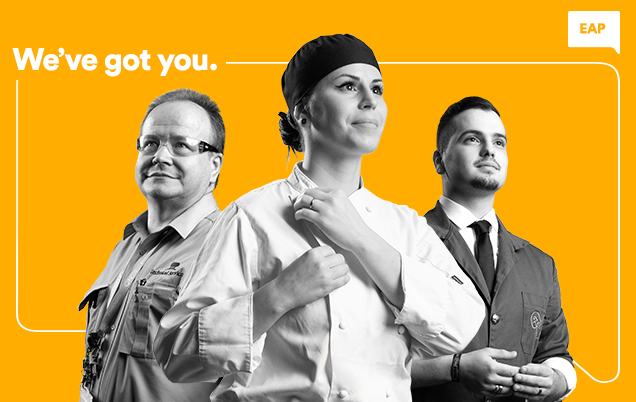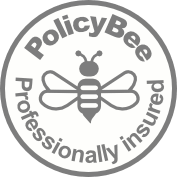The Hidden Challenge of Mental Health in Hospitality
Where to start?
Back in May of this year the Royal Society for Public Health (RSPH) published a report titled‘Service with(out) a Smile-The Mental Health of Hospitality Workers’. The report gave insight from 743 Hospitality workers that had been surveyed between March and May’19. It is important to put into context that with 6 million people employed within the industry the limitations of the RSPH report should be self-evident in sample size, however when the data is taken as a benchmark to compare against other similar surveys there are some interesting similarities on the results of the big-tickets questions.
……and there are more statistical reports that I haven’t referenced, however all have a common theme – we have an issue and we’re not doing enough to tackle it in the eyes of those suffering.
Are we any different from other industries?
Now, full disclosure, I’ve spent my entire career of almost 25 years in hospitality, I’ve never known anything else. As a result, I don’t have a comparison from any other industry to bench-mark whether we in hospitality are alone in these challenges – I expect not; in fact the only comparison I could find was in the RSPH report which used the Legal profession as a comparative sector in that they would also work long hours, experience a high workload, stress and demanding situations.
Some research from across the web on this matter showed that the Legal sector launched ‘The Legal Professions Wellbeing Taskforce’ in 2016 with an agenda to raise awareness around mental health and share best practise across the industry from all avenues of society. Reports conclude that this has helped but progress is slow.
The hospitality sector accounts for the 3rd biggest employment sector in the UK. An estimated 70 million working days are lost every year within the industry to mental health problems believed to cost employers around £2,4 billion a year; of that 12.7% of all sick days are attributed to mental health conditions. Even if we don't consider a move to improve mental health within the industry a societal obligation, from a pure business standpoint the benefits for employers to take mental health seriously and to put measures in place to improve employee wellbeing would appear obvious.
Employee Assistance Programme
That is not to say that even if you implemented all those ideas that employers won’t still find themselves facing the challenge of mental health in their workplace and to that I turn again to Hospitality Action.
For the cost of £5 per employee per year Hospitality Action’s Employee Assistance Programme (EAP) was created by hospitality people, for hospitality people, and already supports over 130,000 industry professionals:
“…Our EAP supports industry professionals by providing specialist, independent and confidential advice, support and assistance. Its range of benefits includes personal counselling, legal guidance, addiction support, debt and money advice, parenting helpline, elder care helpline and a whistle-blowing service - all for an annual cost of just £5 per employee. Whatever the problem, we’re here to help 24 hours a day, 365 days per year.
We also offer critical incident and trauma support. For example, we provided on-site counselling to hospitality professionals… should a hardship grant be required by any recipients of EAP support, we’re able to point them towards our grant-giving team, for consideration for further support…”
Five. Pounds. Per. Year .Per. Employee.
If we’re serious about raising awareness of mental health and offering the requisite support that the statistics bare out that we're lacking as an industry, the EAP seems like a 'no-brainer' to start the ball regardless of the size of your organisation. For more information about the EAP follow the link below:pitalityaction.org.uk/about-us/
Who else is out there?
Further clicks around the internet shows that there are other hospitality centric support organisations out there too:
Founded in 1886, The Benevolent’s mission is to help those from the trade facing serious medical or financial hardship or any other workplace or home difficulties. The Benevolent helps anyone who works in any role in the UK drinks industry. They define the drinks industry as any part of the supply chain including, but not limited to, production, distribution, marketing, import, export and sales of alcohol in both the on trade and off trade of the UK market. In practical terms this means anyone who has worked in pubs, breweries, bars distilleries, off licenses and warehouses or in an office-based role at a company producing, distributing or selling primarily alcohol.
The Healthy Hospo offer online education, practical advice, and inspiration through their website and social media feeds to help hospitality professionals live healthier, happier lives. Founded by a former hospitality worker who suffered his own mental health issues whilst working in the sector they run a variety of events including Wellness Workshops, regular seminars and flagship health and creativity retreats. The Healthy Hosp also work with hospitality outlets around the world to assist them in implementing health and wellness programs designed to encourage healthier, more productive and profitable staff.
The best Aid is First Aid
So, help it as hand. There are organisations out there who are here to support and advise those from the sector, I just don’t think we shout about them enough, or even know that they exist!! I’ll be honest, whether by my own ignorance or not, I had never heard of these organisations until I started to look – and two of them have been around since the 19th century so it’s not like they’re new on the scene!! I’d be interested to find out how many people were also in the dark around these guys being in operation.
Out of the research I’ve done, there was one reoccurring idea, strategy, proposal that really struck home with me and it feels like the next logical step for those looking to make a positive impact within he culture of their own business. That is the appointment of a Mental Health First Aider.
I’m pretty sure we’re all aware of our responsibilities towards First Aid within the workplace as part of our Health & Safety strategies, but it feels like now is the time to take those responsibilities to the next level and to be active with First Aid of the mind and not just the body. A quick Google search (other web search engines are available!) turned up any number of courses available from half day to 2-day durations at non-prohibitive pricing to start the journey of appointing a Mental health First Aider.
The challenge is clear
What does all this mean in the end though? The hospitality industry has always been a place where you can find a place and pursue a career regardless of background. Our Teams are integral parts of the industry and we ask them to put a brave face on sometimes in the fiercest of environments and at times surrounded by the cruellest of critics – our guests. For those in a management position we ask even more; to supply a positive energy for our businesses to feed off regardless of situational challenges, be those personal or professional.
There are so many aspects of the industry that can (and are) causing anxiety, stress and depression and we have a responsibility to put aside the macho attitude of stiff upper lip and ‘get on with it’ and to start to recognise that we start from a base of having done so little despite there being so much to do. Those within the sector should not be held to an impossible standard of mental health in an environment that is testing both physically and mentally and I would hope that the support highlighted in this blog can point you in the direction of the support that is available for us all.
See you at the bar….
Mark
Note: as a result of this topic and my research over the past week I have sent off an application on behalf of WHAM Consultancy to become a corporate member of Hospitality Action. I plan to carry out fundraising activity over the course of the next 12 months to support the work that organisation does within the sector. If you’d be interested in getting involved in any fundraising please drop me a line.
If anyone would like any further information around the support organisations detailed in this blog or would like to discuss ways in which you can tackle metal health awareness or employee wellbeing in your workplace, please feel free to get in touch via my contact details in the website header.




